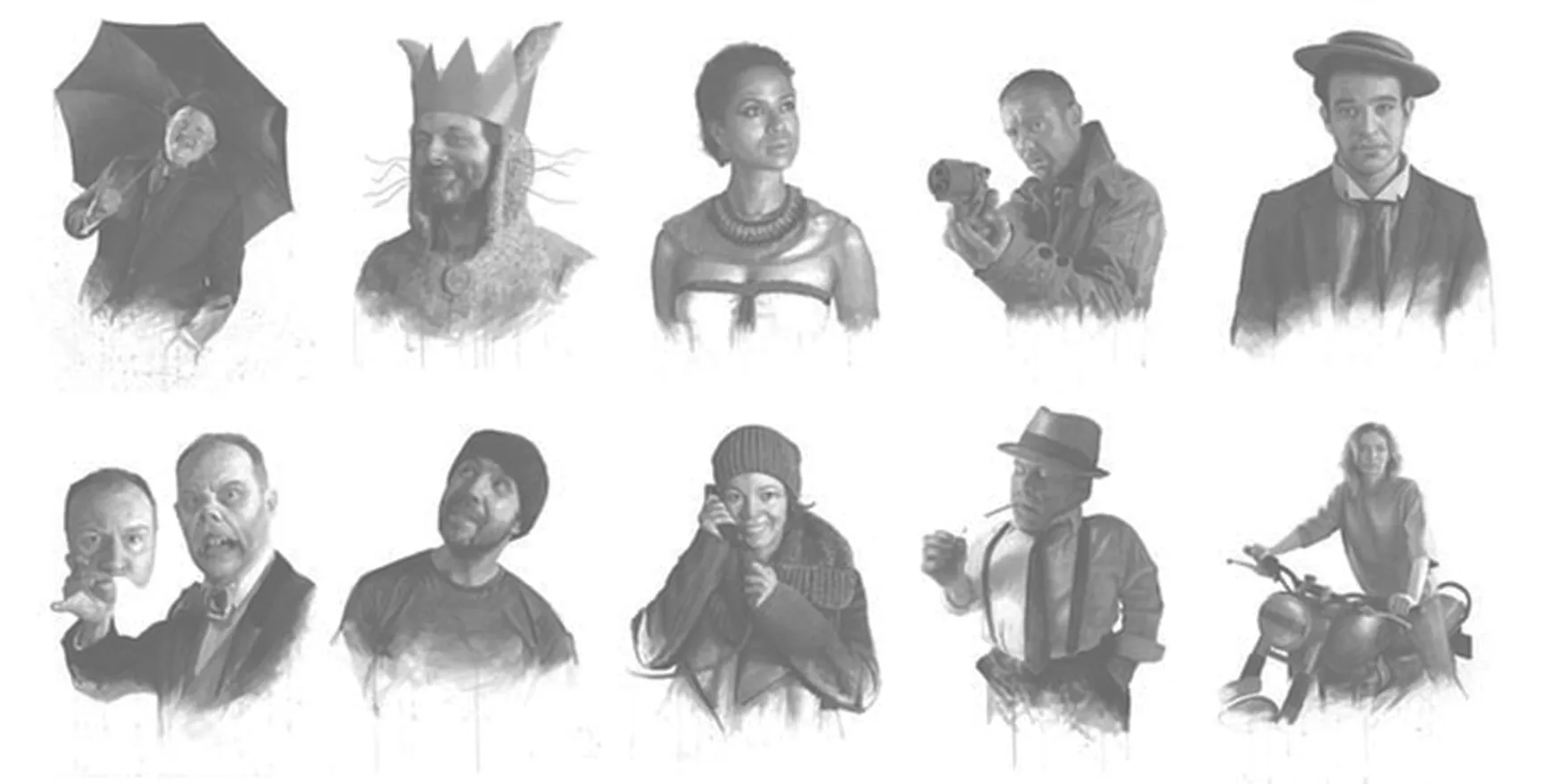莎剧早期缘何不准女性登台
文/伊丽莎白·斯坦威 译/丁占罡
The role of Desdemona, the devoted,loving wife murdered by her husband in “Othello,” wasn’t performed by a woman until 1660—about six decades after Shakespeare wrote the play.This is because when Shakespeare was writing for the early modern stage, young men and boys performed all the women’s parts.
《奥赛罗》中,深爱丈夫的苔丝狄蒙娜被丈夫杀害。这一角色在1660年之前,也就是莎士比亚创作完成该剧之后的60年间,都不是由女性扮演的。这是因为在莎士比亚为早期现代舞台创作的年代,所有女性角色都由男青年和男孩子扮演。
2Numerous English theatergoers1theatergoer戏迷,戏院常客。considered seeing women on the public stage for the first time a pivotal moment, including the civil servant and diarist Samuel Pepys2(1633—1703),17世纪英国作家和政治家,英国历史上最伟大的文官之一,其著作《佩皮斯日记》被誉为“17世纪最丰富的生活文献”。.It was just one month after the first female actress played Desdemona that Pepys recorded“the first time that ever [he] saw Women come upon the stage.”
2众多英国戏迷第一次看到女性登台公演时,都认为这一刻意义非凡,这其中就包括当时的文官、日记作者塞缪尔·佩皮斯。首位女演员饰演苔丝狄蒙娜刚过一个月,佩皮斯就记录道:“(他)有生以来第一次看到女性登台演出。”
3后来,国王查理颁布王室公告,正式宣布:“朕……准予上述两家公司此后出演的所有女性角色皆可由女性扮演。”
3King Charles subsequently issued a royal proclamation to make it official:“Wee doe … permit and give leave That all the woemens part to be acted in either of the said two Companies for the time to come maie be performed by woemen.”3此句引文中多个单词为早期现代英语的拼写形式,例如Wee在现代英语中拼写为We,其他的也一并列举如下:doe = do,woemen = women,maie = may,playes =plays,sinfull = sinful,lewde = lewd,第8段的baudie = bawdy。这里的we为the royal we的用法,旧时国王或女王自称时,用we替代I。
A puzzling situation
4I have thought a lot about why men performed women’s roles because I research how pregnancy was represented on the early modern English stage during this period of all-male casts.The restriction has long puzzled scholars, mostly because no clear legal statute prohibited it, and women acted professionally in other countries during this period.
难解之谜
4我对缘何男扮女角思考很多,因为我研究的是:在演员都是清一色男性的早期现代英国舞台上,怀孕该如何表现。长期以来,这种性别限制让很多学者感到费解,主要是因为没有什么法规明令禁止这一做法,而在同时代的其他国家,已有女性以职业演员的身份登台表演。
5Also, women could perform in other venues, such as masques4masque假面剧(16至17世纪盛行于英国的一种诗剧,常伴以音乐和舞蹈)。, where dance,music and spectacles were enjoyed by aristocrats in England during the 16th and 17th centuries, and country house5country house(尤指有地位富人家庭的)乡间宅第,别墅。entertainments—short plays that were staged for the queen and performed at country estates.
5不仅如此,女性还献演于其他场所,比如16和17世纪的假面剧,英国贵族可从中欣赏到舞蹈、音乐和壮观的场面;她们也会到乡间宅第参与娱乐演出,在乡间居所为女王献上舞台短剧。
6It’s possible that women were allowed to perform in these settings because they were more private and associated with an elevated class status.There was something inappropriate,however, about women professionally acting on the public stage.
6准许女性在此种场合表演是有可能的,因为这些地方更为私密,且观众来自社会顶层。然而,女性若是以职业身份登台公演,就有些不合时宜。
7这种对女性的限制或许与人们对剧演总体上持有的一些负面看法有关。清教徒作家威廉·普林在其书面声明中总结道:“大众化舞台剧是邪恶、野蛮、下流的,是亵渎神灵的表演,是最具危害的堕落。”在很多反剧场主义者看来,戏剧是“邪恶的”,因为它们助长享乐,鼓动人们观看“亵渎神灵的表演”,而不是去工作或到教堂做礼拜。尤其是对女性而言,参与戏剧公演并从中获利通常被视为有伤风化。
7These restrictions on women may be related to some of the negative views of acting in general, summarized in Puritan writer William Prynne6(1600—1669),英国律师、作家、辩论家、政治人物,1634年撰写小册子攻击伤风败俗的剧演,批评戏剧、女演员和观众的不雅行为,很快便以诽谤和“寻衅滋事”罪被判监禁并被割去双耳。’s declaration that“popular stage-playes are sinfull,heathenish, lewde, ungodly spectacles,and most pernicious corruptions.”According to many anti-theatricalists,plays were “sinfull” because they promoted pleasure and encouraged people to watch an “ungodly spectacle”rather than working or attending church.For women in particular, it was generally deemed indecent to participate in and make money from such public performances.
8Others commented on the difference between English theater and the theater in continental Europe, where women did act professionally.The writer Thomas Nashe7(1567—1601),英国小册子作家、剧作家、诗人,伊丽莎白时代活跃于伦敦戏剧界的“大学才子”之一。wrote: “Our Players are not as the players beyond sea, a sort of squirting baudie Comedians.”
9Even though many writers condemned the practice of men’s wearing female attire on stage, to them it was still preferable to having women become public spectacles on the professional stage.
8英国剧场与女性能以职业身份登台的欧洲大陆剧场之间存在差异,也有人对此发表评论。作家托马斯·纳什写道:“我们的演员跟大海那边的演员不一样,那就是一些动作猥亵、下流的滑稽演员。”
9尽管很多作家对男着女装登台表演予以谴责,但在他们看来,比起让女性在职业舞台上公演,这一做法更为可取。
10在莎士比亚生活的时代,女性虽然不能出现在舞台上,却可以通过其他方式参与戏剧制作。比如,她们可以缝制或改制戏装、收入场费、出售食品或在剧场内使用的其他用品,甚至还可以做剧院老板。
10Although women weren’t on stage during Shakespeare’s lifetime,they were involved with theatrical productions in other ways.For example,they made and altered costumes, collected admissions fees, sold food and other goods used in the theater, and even owned playing houses.
11Since Charles’ declaration that women’s parts “maie be performed by woemen,” women have played an increasingly diverse role in Shakespearean theater—including playing lead male roles.
12In 1899, Sarah Bernhardt8(1844—1923),19世纪和20世纪初法国舞台剧和电影女演员,被誉为“世界上最著名的女演员”。performed as Hamlet.More recently, Jessika D.Williams9美国女演员,2020年在美国莎士比亚中心(ASC)推出的莎剧《奥赛罗》中饰演男主角奥赛罗。played the lead in “Othello.”
13These gender reversals are a reminder that much has changed since men and boys played all the women’s parts, and that much more will continue to change as society grapples with10grapple with设法解决(难题),努力应付(困境)。questions about gender, identity and performance.■

11自国王查理宣布女性角色“可由女性扮演”以来,女性在莎剧中饰演了越来越多样化的角色,包括男主角。
121899年,莎拉·伯恩哈特扮演了哈姆雷特。不久前,杰西卡·D.威廉姆斯在《奥赛罗》中饰演了男主角。
13这种角色反转提醒人们:从前是男人和男孩饰演所有的女性角色,如今这一状况已发生了很大变化,而随着社会努力解决性别、身份、表演等相关问题,更多的变化还会到来。 □

